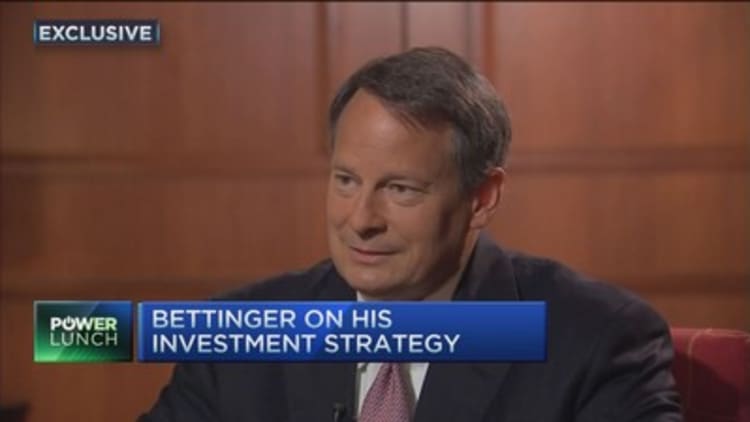
Active management is still looking good in 2015 after years of misery, though the picture isn't quite as rosy as it was a few months ago.
The group is outperforming its benchmarks at levels not seen in six years, according to an analysis from Fundstrat Global Advisors that showed things are going particularly well in 2015 for those who focus on value stocks. (Tweet this)
However, the second quarter overall marked a bit of a momentum slowdown as market conditions changed.
It's been an odd year for the stock market, with investors wary over what the Federal Reserve will do with interest rates now that its quantitative easing program has been put on hiatus. Major indexes outside of tech have wobbled, with every rally met with a pullback and little conviction in either direction.
"While still better than last four years, fund managers slipped in past two months," founder and strategist Thomas J. Lee said in a report. "Active managers saw some weakening in performance in the past two months ... which we attribute in part to heightened market volatility in the past few months.
"The mixed signals from QE and rising rates, have made indices stall, which in turn, eroded some performance gains. What has been impressive is the fact that global managers still outperformed, even as global indices generally put in stronger performance."
Read MoreThe strange reasonwhy stocks may soon surge
Overall, 52 percent of large-cap managers are beating their benchmarks (such as the or Russell 1000), 48 percent by at least 0.1 percentage point (see chart).
Bu the performance is especially strong for value managers, or those who focus on stocks they feel are trading substantially below where they should be. That group has shown a 73 percent beat rate this year.
The benchmark-beating trend come as many of those indexes managers used to gauge performance have turned in lackluster performances.
The S&P 500 is up about 1.9 percent year to date and is negative 0.5 percent for June. The small-cap focused has done substantially better, with a 5 percent gain on the year. The large-cap Russell 1000 Value index, however, is up just 0.2 percent while the broader Russell 3000 Value has gained only 0.3 percent.
Investors remain torn over the active vs. passive debate.
Equity-based mutual funds, which are mostly actively managed, have taken in $21.3 billion year to date, though funds focusing on U.S. stocks have surrendered $39.3 billion, according to the Investment Company Institute. Actively managed bond funds have attracted a whopping $49.6 billion.
Money is gushing into mostly passive managed exchange-traded funds, however. The $2.1 trillion industry had attracted a net of $67.5 billion through April, according to the ICI. (XTF.com puts the year-to-date net total at $94.4 billion.)
Proponents for active management cite the ability to achieve gains that can't be realized through simple index tracking, as is the practice for passive managers. The other side believes that underperformance and high fees make active management too difficult.
Read MoreStocksthat may break out while market drags
The ability to continue to outperform, then, will go a long way to determining whether the move toward ETFs is a permanent one.
Fundstrat said small-cap managers have outperformed at a 57 percent rate, while 54 percent of global managers have beaten benchmarks. The average value fund is topping its benchmark by 1.19 percentage points.
The best strategy for outperformance has been underweighting financials, which are up 0.9 percent year to date on the S&P 500, and overweighting healthcare, which is up 8.6 percent in the large-cap universe.
Fundstrat's survey covers 4,096 funds with $7.9 trillion under management.






